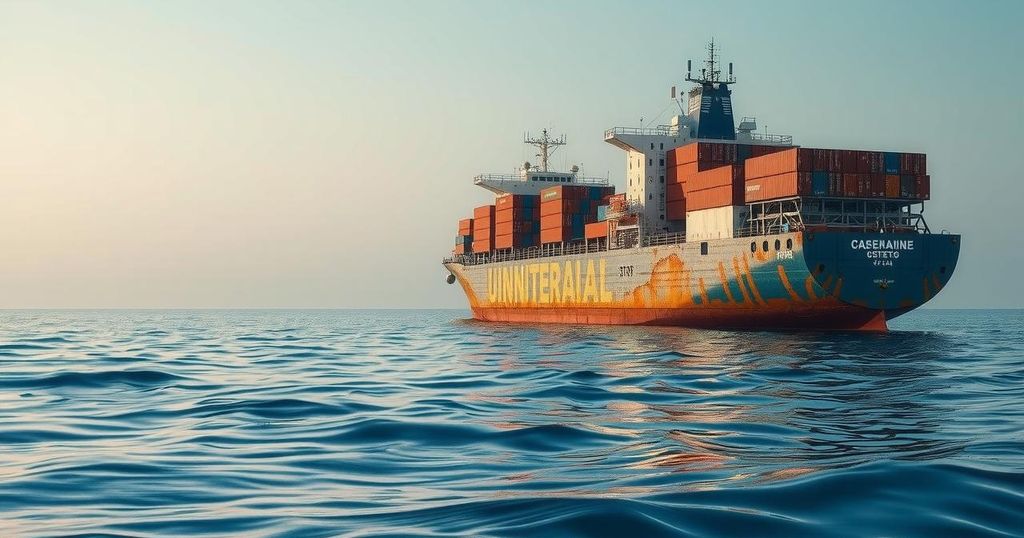Pallada LLC’s Rerouted Cargo: Ukrainian Wheat Export to Egypt from Syria

A Russian company, Pallada LLC, rerouted 20,000 tons of stolen Ukrainian wheat from Syria to Egypt, leveraging warehousing to influence global food supply chains during the ongoing conflict with Ukraine. This action follows systematic efforts by Russia to take control of agricultural resources in occupied regions, causing international condemnation and alert to illegal grain shipments.
A Russian company named Pallada LLC exported over 20,000 tons of wheat to Egypt after rerouting from Syria, as reported by the Organized Crime and Corruption Reporting Project (OCCRP). This company has faced accusations of selling grain sourced from occupied regions of Ukraine, receiving export permissions for significant volumes of wheat, barley, and meslin in 2023.
Since Russia began its occupation of southern and eastern Ukraine in 2014, which intensified with the invasion in February 2022, it has made systematic attempts to seize agricultural resources, particularly grain. This strategy aids Russia in influencing countries in the Global East and Africa amidst its ongoing conflict with Ukraine.
The vessel Mikhail Nenashev, sailing under the Russian flag and initially carrying 27,000 tons of wheat to Syria, altered its course after the Assad regime’s collapse. It docked in Alexandria, Egypt, with a cargo intended for Mostakbal Misr, a military agency in charge of importing strategic goods.
Ukraine’s foreign ministry condemned the actions, stating, “Russia has committed a triple crime: it bombed out Syria, temporarily occupied a part of Ukraine, and is currently selling Ukrainian grain it has stolen there to Syria.” Export documentation proves that Pallada sourced wheat from occupied Zaporizhzhia in the preceding months. Earlier reports identified the vessel as one of three suspected of transporting stolen Ukrainian grain.
Vladiyslav Vlasiuk, an advisor to Ukraine’s president, noted several potential issues with the shipment, stressing the importance of rigorous due diligence and compliance checks. Agronomist Mike Lee pointed out the difficulties in tracking grain origins, stating, “the grain trade is a murky business at the best of times and suitcases full of cash can be transferred.”
The export of Ukrainian grain by Pallada LLC highlights significant issues of territorial violation and illegal trade during the ongoing conflict. Accusations against Russia regarding the appropriation of agriculture resources underscore a broader strategy to influence global food supplies and assert power. It reflects the complexity of monitoring agricultural exports amid wartime conditions, raising concerns about compliance and transparency in international grain trade.
Original Source: euromaidanpress.com







